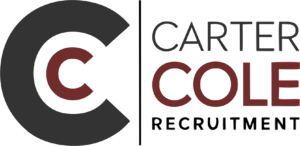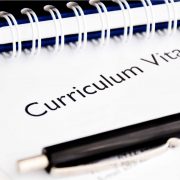How To Write The Perfect Covering Letter
Writing a covering email to accompany your CV
If your CV is attached to the email, then use the main body of the email as your covering letter. Tell the employer how you meet their key requirements so that you can immediately make a good impression and entice them to open the attachment and look at your CV in more detail.
- In the subject line of the email, list the vacancy title, reference number and where you saw or heard about the vacancy
- Use the body of the email to convince the recruiter in three to five bullet points that you are the right person for the job
- Send the CV as an attachment clearly labelled with your name
- Spell-check before sending the email
Email covering letter template
To: Ann Brown
Subject: Project Manager, ETD, Ref No. 1234 Management Today
Attachment: MWoodProjectManagerCVfeb13.doc
Dear Ann,
I am interested in applying for the above job as I believe my substantial experience in project management combined with my knowledge of the telecommunications sector will be of particular benefit to your organisation.
ABC has an excellent reputation for innovation and having worked on a number of ground-breaking technological projects from the planning to the implementation stage, I believe that I can make a significant contribution to your organisation.
In particular, I have:
- 10 years’ experience in managing teams of between 5 and 15 people on a variety of complex telecommunications projects
- An engineering background which gives me the ability to quickly grasp new technical detail and assess implications for operational planning
- Experience and qualifications in PRINCE2 project management software
- Superb relationship-building skills enabling project team members to focus on tasks even during challenging times
My CV is attached, providing further information on how my career background meets your requirements. I would welcome the opportunity to meet with you in person to discuss this further.
I look forward to hearing from you.
Mike Wood
Tel: 07777 555 555
CV & Email Checklist
Remember, first impressions are very important. The following is a quick checklist before sending off those emails.
Your CV attachment if sending in Microsoft Word:
• Arial or Times New Roman size 10–12 for body of text and size 14 for headings
• Standard margin lengths
• Bold used sparingly, principally for headings
• No columns or boxes
• No graphics, photos or Jpegs
• No shading
CV attachment if sending as PDF:
• Checked that recipient/website can upload or view these
CV attachment sending from or to a Mac:
• Double-check format to ensure CV is compatible with recipient’s software
- Has all the spelling and grammar in the email covering letter been double-checked?
- Have you specified in the Subject Line of your email the vacancy/reference number of the job for which you are applying?
- Does the email covering letter state why you are a good candidate?
- Is the covering letter written formally, using full sentences with bullet points to reinforce key selling points?
- Have you addressed the individual by name, if known, in the covering letter?
- Have you labelled your CV attachment with your name?
- Have you created an email address just for job-searching?
- Have you included your telephone number in the main body of your email to make it easy for people to contact you?
Sourced from: https://jobs.theguardian.com/article/how-to-write-the-perfect-email-covering-letter/
How To Handle Interview Nerves
For many of us, that initial excitement of getting a job interview is short-lived. The nerves kick in, you start to panic. Here are some tips for reducing the potential of nerves getting the better of you – and how to handle them if they do.
Before the interview…
Do your research and practice
Nerves stem from fear, and in an interview fear is related to being asked something you weren’t prepared for, says Capita Resourcing director Jonathan Bennet: “Research the company and practise talking through your experience over and over again; with your partner, dog or reflection. If you understand the company and can comfortably talk through your career, skills and experience, you’ll feel a lot more relaxed.”
While you may still encounter some curveball questions, anticipating the sorts of questions you may face will be a big help – and working with an experienced recruiter to do this could be useful, adds Bennet. Feeling prepared should help stave off the majority of nerves, and make the whole experience a lot less stressful.
Ask yourself tough questions
A key part of your confidence-enhancing preparation should be to focus in
advance on the worst things you could be asked during the interview, says Michael Dodd, author of Great Answers to Tough Questions at Work. He explains: “To get yourself properly equipped and in the best frame of mind to deal with such questions, prepare by asking yourself what is the best thing you can say on that. This ensures you have your own self-empowering positive agenda that can help you capitalise on the situation and feel good about tough questions they may well throw at you.”
Confidence coach Jo Emerson adds that it’s useful to imagine you at your very best before the interview: “Imagine how you feel when you’re at your best … what do you say? How do you stand? What do you believe about yourself? What tone of voice do you use? Now, practice being this person in the mirror and take him/her into the interview with you.”
Exercise, sleep, hydrate
Ben Barker, a therapist from Total Health Clinics, advises taking regular exercise in the lead up to the interview to burn that excess nervous energy. “While turning up to an interview hot and sweaty is not ideal – taking regular exercise in the lead up before nerve inducing situations can be really helpful. It promotes oxygenation of the blood, boosts endorphins and promotes a good night’s sleep,” he explains.
It might sound obvious, but sleep is important too. “Staying up late and ‘preparing’ for the following day is not a good use of your time. Get a good, restful sleep and you’ll be far more alert the following day,” says Barker. And finally, drink plenty of water to promote tip-top performance.
On the day…
Don’t be rushed
Plan your travel well ahead of time. Tearing through the train station and trying to navigate your way through an unfamiliar place with minutes to spare is sure to make you anxious and heighten those nerves; it could also impact your performance. Naomi Watkins, emotional wellbeing consultant at NW Consultancy, recommends finding where the company is beforehand and time how long it takes to get there and where to park. Building in some time for a 10-minute walk around the block before the interview can help calm the nerves too, as well as mindfulness exercises.
Bennet adds: “If you are already working, book a day or half-day holiday from your current role just in case, rather than hoping you’ll be able to slip away for an hour or two.” Building in some time for a 10-minute walk around the block before the interview can help calm the nerves too.
During the interview…
Have an icebreaker handy
Remember that the interviewer is a person too and could also feel nervous about running the interview. Bennet recommends preparing your own icebreaker to put both of you at ease. “Research the interviewer’s background using tools like LinkedIn and try to find something you have in common or something you can ask them about,” he says. “Something as simple as ‘I see we both studied English at university – how did we end up in accounts?’ or ‘I saw on your company website that you managed the charity cycle ride, how did it go?’ can set a nice tone for the meeting.”
Breathe
If nerves get the better of you beforehand, try and slow your breathing down, says Barker. Take slow, deep breathes in through your nose and use your diaphragm. Breathing in through your chest can aid the tension you feel, particularly in the neck and shoulders, he explains.
However, any breathing exercises will go to waste if you rush your answers once you’re in the room, adds Benett. “Most people don’t realise that good pauses when speaking aren’t even noticed by the person or people you are talking to,” he explains. He recommends watching some famous speeches by great speakers and looking out for their pauses. “You’ll see that they are completely natural and help the speaker remain in control of their breathing and their general flow. Giving yourself time to think will help avoid a rushed answer and a shaky voice.”
Project confidence
Job applicants should sit in a way which makes them look and feel good and which projects confidence, says Dodd. The key expression to remember is BBC – Bottom at the Back of the Chair. “This, together with having your feet flat on the floor and keeping your arms apart and hands open – showing that you have nothing to hide – helps you look and feel open and confident,” he says. “When you get your body in the right position, and lean ever-so-slightly forward to convey enthusiasm, you project confidence to the selection panel and it also sends a message to your brain that you are feeling confident too.”
Emerson adds: “My number one top tip is to ‘hold the outcome lightly’, by which I mean do your very best and be your very best self in the interview but understand that you can’t affect the outcome. There are other factors involved in an interview process so try to just focus on your bit.”
Originally published at https://jobs.theguardian.com/article/how-to-handle-interview-nerves-/



